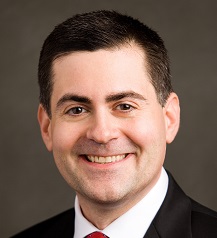By Bob Allen
Southern Baptists’ top spokesman for public policy says he knows from personal experience that religious-liberty concerns such as whether a cake decorator can refuse service for a same-sex wedding are anything but trite.
 Russell Moore, head of the Southern Baptist Ethics and Religious Liberty Commission, said in an interview recorded in March, and recently posted online, that there is an “elitist disdain” in people who dismiss the controversy as someone “just baking a cake.”
Russell Moore, head of the Southern Baptist Ethics and Religious Liberty Commission, said in an interview recorded in March, and recently posted online, that there is an “elitist disdain” in people who dismiss the controversy as someone “just baking a cake.”
“I am the son of a mother who was a cake decorator, worked for weddings,” Moore told Midwestern Baptist Theological Seminary President Jason Allen in an interview on religious-liberty concerns recorded March 5.
Moore, who recently engaged in a heated online debate on the issue with Fox News analyst Kirsten Powers and Religion News Service blogger Jonathan Merritt, said not every cake decorator is the same.
“Sometimes you have people who bake wedding cakes [who say]: ‘Here is our wedding cake. Come have the wedding cake. You come in, and you do not need to say what this wedding is for.’”
“My mother used to sit down with the couple and would say: ‘We are going to make a groom’s cake that is indicative of his interests and what he is doing. We are going to make a wedding cake that seeks to tell the story of this wedding,’” Moore said.
“Photographers … do the same thing,” he said. “They are not just coming in and taking photos.”
“They are coming in and saying, ‘You stand here and you stand there, because we are wanting to tell the story of this wedding,’” Moore said. “So, [for] those people who say, ‘My conscience is implicated in this,’ the Scripture tells us that to sin against conscience is to sin against God.”
Moore said it is one thing to debate whether or not a Christian baker or photographer should participate in a same-sex wedding and another for the government to say that they must.
That’s essentially what happened, he said, when the New Mexico Supreme Court in August 2013 ruled against Albuquerque-based Elane Photography, convicted by a lower court of violating the New Mexico Human Rights Act — which bans discrimination based on sexual orientation — by refusing to shoot the commitment ceremony of a same-sex couple.
Business owners Elaine and Jonathan Huguenin, Christians who oppose gay marriage, unsuccessfully argued that taking photographs can be seen as a form of speech, and under the First Amendment of the U.S. Constitution they cannot be required to “express messages that conflict with their religious beliefs.”
Moore said the message to such businesses is: “When you come into the marketplace, it is the price of citizenship to give up that conscience and those convictions.”
“The problem with that is that now restricts everybody’s liberty and everybody’s freedom,” Moore said.
Just prior to the interview, Moore said, a story was in the news about a gay hair stylist who said, “I don’t want to do hair for Suzanna Martinez of New Mexico because she is anti-same-sex marriage.”
“This person says, ‘I do not want to be involved in making her look good to stand up and give speeches against same-sex marriage,’” Moore said. “Well, why should that not be outlawed for somebody who is in the marketplace?”
“What ultimately happens is we wind up with a situation where we are saying — and this goes not only with those situations, but also with what is happening with the HHS mandate — where we say, ‘If you are in business, we don’t want you to have moral convictions.’”
“You and I are sitting here with Starbucks cups in front of us,” Moore told Allen. “Starbucks puts little sayings on the cup, and they are not going to put sayings on the cup that conflict with their values. Nor should we want them to.”
Previous story:
